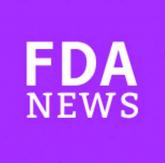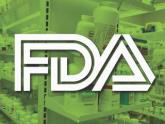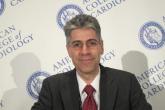News


Large clinical trials assessing efficacy and safety are ongoing, but early results from the OSLER-1 (Open-Label Study of Long-Term Evaluation Against LDL Cholesterol) and OSLER-2 studies show an overall reduction in the rate of cardiovascular events, lead study author Dr. Marc S. Sabatine, senior physician in cardiovascular medicine at Brigham and Women’s Hospital, said in an interview. Dr. Sabatine, chairman of the TIMI (Thrombolysis in Myocardial Infarction Study Group), spoke on behalf of Amgen at the FDA panel meeting on evolocumab.
Asked about the appropriate target population for evolocumab, Dr. Sabatine said, “it comes down to one simple principle: This medicine should be used for those at risk of cardiovascular events, but whose LDL is not well controlled.” Whether the elevated LDL cholesterol is caused by one genetic factor, as in familial hypercholesterolemia, or whether a host of genetic or environmental factors contribute, the effect for the patient is the same, he noted, “the LDL is still too high.”
For most patients, said Dr. Sabatine,“reach for statins first, to the maximally tolerated dose.”
The cost of the two PCKS9 inhibitors are a concern, said Dr. Martin and Dr. Sabatine, although Dr. Martin pointed out that these medications may prove to be cost-effective if used as part of rigorous and evidence-based stepwise therapy for dyslipidemia.
At the time of approval, Regeneron and Sanofi said that the cost of alirocumab would be about $14,000 yearly, based on its average wholesale price. At press time, the price of evolocumab was not available.
The timing of FDA approval for the two PCSK9 inhibitors may help pricing, according to David Whitrap, director of corporate communications for the pharmacy benefits management company Express Scripts. “These back-to-back approvals should allow natural market competition to influence the ultimate cost for the PCSK9 inhibitors....[W]e plan to leverage this competition to achieve the best possible price for the patients and payers we represent,” he wrote in an email interview. Express Scripts hopes to be able to offer both PCSK9 inhibitors in formularies for its clients, he added.
After the alirocumab decision in July, CVS Caremark said that it would wait until the FDA had ruled on both drugs before making formulary decisions. Investors have been speculating about whether the close timing of the drugs’ arrival on the market could spark a price war.
Recommended dosing for evolocumab is 140 mg subcutaneously every 2 weeks or 420 mg once a month; dosing for patients with HoFH is 420 mg every 2 or 4 weeks.
Dr. Martin reported being a co-inventor on a pending patent through Johns Hopkins University for a method of LDL-C determination. Dr. Sabatine reported relationships with multiple pharmaceutical companies, and testified on behalf of Amgen, which funded Osler-1 and -2, before the FDA advisory committee. Dr. Kopecky has received research support from Genzyme, Regeneron, and Amgen, and reported multiple additional relationships.
On Twitter @karioakes
This article was updated 8/30/15.



Key clinical point: Evolocumab shows impressive LDL lowering and slashes cardiovascular events.
